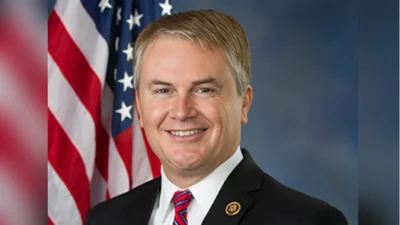Dear Mr. Chairman:
On May 7, 2013, we spoke by telephone, and I asked whether you would invite members of the Accountability Review Board (ARB), which was convened by the State Department to examine the attacks in Benghazi in September 2012, to the Committee’s public hearing on May 8, 2013. Ambassador Thomas Pickering, in particular, had expressed to my staff his willingness to testify, but you told me you did not want ARB members to appear at the May 8 hearing and that you preferred to invite them to a second hearing in the near future. You stated that you wanted to keep these two hearings “separate," and that you would hold a subsequent ARB hearing very soon.
I believe it is important for ARB members to testify publicly for two reasons. First, the ARB thoroughly investigated the attacks at Benghazi, interviewing more than 100 individuals, reviewing thousands of pages of documents, and issuing a detailed report with 29 substantive recommendations. The ARB was led by Ambassador Pickering, who previously served as U.S. Ambassador to six countries and to the United Nations, and retired Admiral Michael Mullen, who led a distinguished military career and served most recently as Chairman of the Joint Chiefs of Staff. If our Committee is truly interested in improving the security of American diplomatic personnel overseas, Members of our Committee and the American public should hear first-hand from the individuals who have done the most exhaustive review of these attacks.
I also believe it is important for ARB members to testify publicly before the Committee so they have an opportunity to respond in person to the serious charges you have leveled against them over the past week. Specifically, you have suggested that the ARB was not independent, failed to adequately review the actions of senior State Department officials, and is part of a cover-up designed to deny full accountability for the Department’s failures.
Based on the assurances you made in our telephone call that a hearing with ARB members would be forthcoming, I did not submit a formal request for a witness for the May 8 hearing. Instead, I confirmed our understanding at the hearing the following day, stating:
There have also been allegations that the Accountability Review Board led by Ambassador Thomas Pickering and Admiral Mike Mullen failed to examine the role of Ambassador Patrick Kennedy. This accusation is again inaccurate, according to the Board. And so, Mr. Chairman, if this Committee is going to suggest that General Dempsey, General Clapper, are all involved in a conspiracy of withholding military assets and then covering it up, and if this Committee is going to accuse Ambassador Pickering and Admiral Mullen of failing to fully investigate these attacks, the least we can do is have them invited to this hearing today, or in a future hearing. And according to our conversation yesterday with regard to Admiral Pickering and Mullen, you said that you plan to bring them in the future, and I respect - I appreciate that.[1]
You did not object to my statement for the record, and you did not challenge my characterization of our telephone call or deny your commitment to hold a public hearing with ARB members in the coming weeks.
I was surprised, therefore, when you stated on Meet the Press yesterday that you now plan to invite ARB members not to a public hearing with Committee Members in the near future, but rather to private depositions with Committee staff. In justifying your decision, you stated: “We don’t want to have some sort of a stage show." You added: “We’ll go through-not in front of the public, but in a nonpartisan way-questions and answers, and then obviously a hearing to follow at an appropriate time."[2]
The concerns you expressed yesterday were nonexistent last week when you invited one of your key witnesses, State Department official Mark Thompson, to testify in public after denying Democratic Committee Members access to him, refusing all Democratic requests for information about his testimony, and failing to conduct a deposition or transcribed interview with him prior to the hearing. Your actions denied Committee Members the ability to investigate Mr. Thompson’s claims before he made them publicly. It was only based on press reports that we learned that Mr. Thompson’s claims were completely contradicted by his former supervisor, Ambassador Daniel Benjamin, the former State Department Coordinator for Counterterrorism.[3]
Despite your earlier commitment, it now appears that you prefer to have ARB members respond to your serious accusations in private interviews with staff rather than in a public hearing with Committee Members. I strongly believe the Committee owes Ambassador Pickering, Admiral Mullen, and all members of the ARB the right to appear in the same venue as other witnesses-a public hearing before Members of Congress-in order to respond to your charges directly and in person.
Since our Committee currently has no hearings scheduled over the next two weeks prior to the upcoming congressional recess, I respectfully request that the Committee designate Wednesday, May 22, 2013, for the ARB hearing.
In addition to a hearing with ARB members, I request an additional hearing with the following officials:
* General Martin Dempsey, Chairman of the Joint Chiefs of Staff;
* General Carter Ham, former Commander, U.S. Africa Command;
* General James Clapper, Director of National Intelligence; and
* General David Petraeus, former Director of the Central Intelligence Agency.
Over the past week, you and other Members of the Committee have accused these officials of withholding critical military assistance that could have saved American lives in Benghazi, intentionally misleading the American people about the attacks, and engaging in a cover-up to conceal their wrongdoing. These are some of the most serious charges you can make against our nation’s top military and intelligence officials, and I believe the American people deserve to hear their responses in the same forum in which you made them-a public hearing before our Committee.
In addition, since our Committee has jurisdiction over all federal agencies and a specific mandate to examine inter-agency coordination, hearing from these officials will assist Committee Members in understanding how the U.S. government coordinated its security efforts in Libya and whether there are lessons that can be learned for improving the security of all U.S. officials serving overseas, including our diplomatic corps, military personnel, and other government agency employees.
Thank you for your consideration of these requests.
Sincerely,
Elijah E. Cummings
Ranking Member









